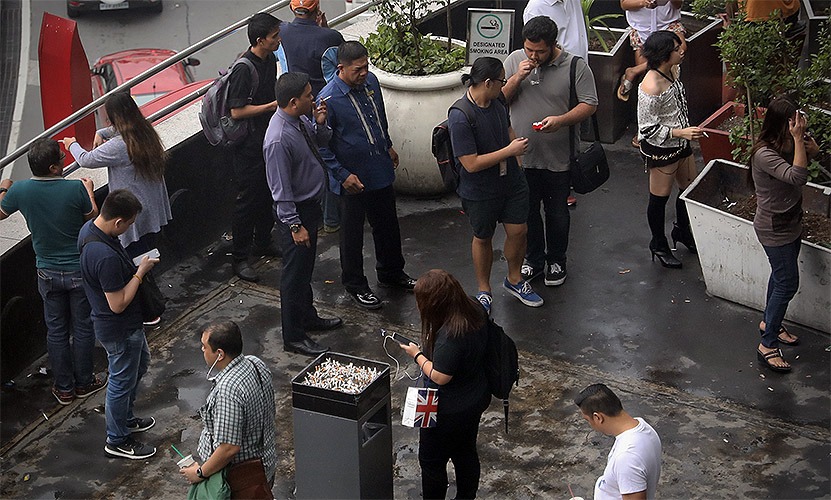
Senator Win Gatchalian is pushing to increase the tobacco tax to P70 per pack in a bid to curb cigarette consumption among Filipinos and raise funds for the Universal Health Care (UHC) programs of the government.
In filing Senate Bill No. 2177 to amend the Tax Code to further increase the tobacco excise tax, the senator expressed alarm that Filipinos’ penchant for cigarettes remained high despite the current P35 per pack excise tax on tobacco products.
Data from the Global Adult Tobacco Survey from 2009 to 2015 shows that the implementation of the P35 per pack tobacco excise tax in the country resulted in only a five-percent reduction in the number of Filipino smokers relative to the entire population. However, the same data shows that the average number of cigarettes consumed per day has increased marginally, from 10.6 in 2009 to 11 in 2015.
“Such figures show that while the prevalence of smoking among Filipinos has decreased, the intensity – as shown by the average number of cigarettes consumed per smoker per day – did not. This situation prevailed even if the tax burden on consumers almost doubled during this six-year period,” Gatchalian said.
“The failure of the current excise tax to produce a significant drop in daily cigarette consumption shows the inelasticity of demand for cigarettes,” he added.
Specifically, SBN 2177 proposes to increase tobacco excise tax to P70 per pack by 2020, followed by a 9 percent annual increase in succeeding years, which, according to Gatchalian, is the optimal rate that would give the government the maximum revenue.
The proposed rate is expected to increase the average price of a pack of cigarettes from PhP79.03 to PhP114.03, according to the lawmaker.
Meanwhile, the government is projected to generate an estimated additional revenue of P35 Billion to P45 billion with the implementation of the P70 per pack tobacco excise tax, and another P5 billion to P6 billion once the 9 percent annual tax increase on tobacco products takes into effect.
On the health perspective, Gatchalian pointed out that the bill aims to decrease the current number of smokers by 1 million; reduce the number of premature deaths of current smokers by half a million; avert approximately 600,000 future smokers from 10.7 million to 10.1 million; and prevent premature deaths of future smokers by 200,000 from 5.3 million to 5.1 million.
“Increasing the excise tax on tobacco products will also help finance the funding gap to implement the UHC bill. The Department of Health estimated that P257 billion is needed to implement the UHC on the first year, with an average additional amount of P90 billion to P100 billion per year to sustain the UHC over a period of five years,” Gatchalian said.
“This legislation will help raise the needed revenues to sustain and enhance the proposed primary care system for Filipinos, while promoting better health and healthier lifestyles,” he added.


